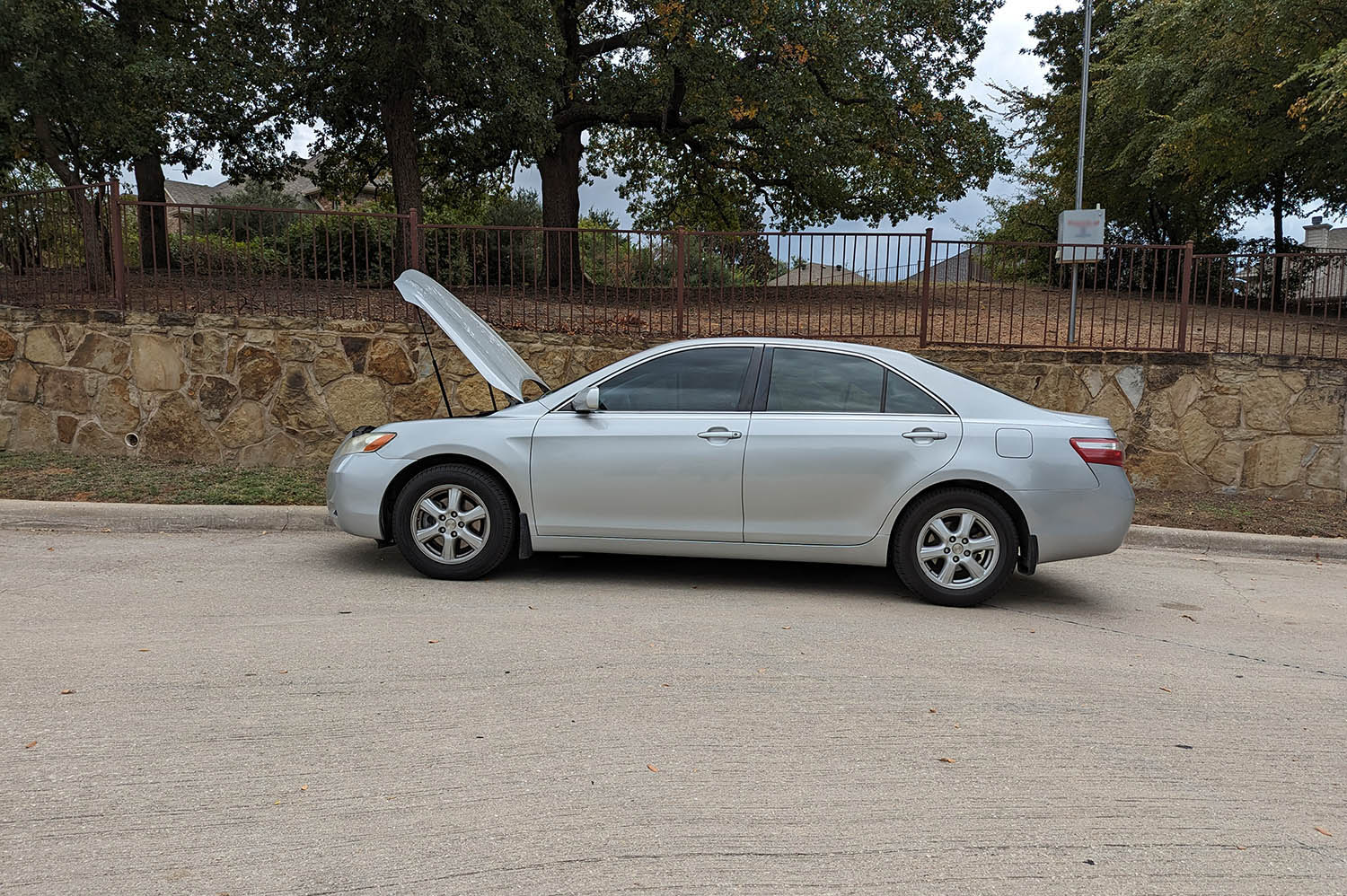3 Reasons Your Car Might Not Start
Learn about several common reasons your car might not start and the symptoms that point to them.
 Austin Lott | Capital One
Austin Lott | Capital One
You get into your car, turn the key or push the engine start button, and nothing happens. You wait and try again, expecting the engine to turn over, but nada. If you aren't handy with car repairs, you might have no idea why your engine won't start. There are a few common causes of a vehicle's failure to start. You can often spot signs indicating which problem you may be facing.
Your Car Has a Dead Battery
If you can't remember the last time you changed your gasoline- or diesel-powered car's battery, there's a good chance this could be your problem. But how can you tell for sure? There are several signs that your car battery is dead or dying.
If your headlights and power are on but your engine didn't turn over, that's an indicator that your standard 12-volt car battery might be the culprit. If your radio won't turn on or if your check-engine light flashes but doesn't stay on, that could also mean your battery is dead. Other signs that the battery is too low on charge include the doors failing to open with a remote or a lack of lights coming on when you turn the key in the ignition.
If you have a sudden slower start or your vehicle starts and then dies immediately, that could be a sign your 12-volt battery is dead or dying. You can test the theory by jump-starting the car. If the engine turns over, a dead battery is likely the problem, and you'll want to get it replaced immediately.
The Starter Has Failed
If you've tried to jump-start the car and the engine is still not turning over, the likely problem could be the starter, which is a small electric motor powered by the battery. Some of the signs of a bad starter are similar to signs of a dead battery — namely that the lights are on but the engine isn't cranking.
There are additional clues that you could be having an issue with your starter. If you hear a clicking noise when you hit the start button or turn the key, for example, that is a common symptom of a starter problem. You might also hear a whirring or grinding noise.
There may be visual clues, too. Because the starter is a part of the car's electrical system, it can overheat and cause smoke to come out from under the hood. You might also smell smoke from inside the car.
There's a Problem With the Car's Fuel System
If you've ruled out a dead battery, verify the basics and make sure your fuel tank isn't empty. If the fuel gauge is at, or near, empty and the low fuel light is on, there's a good chance your car is simply out of gas. If you're nowhere near empty, you could be having a problem with your fuel pump or fuel filter. The fuel pump sends fuel from your gas tank to the engine to start your vehicle. If it's going bad, there are often a couple of notable signs before it fails.
One sign is that your car takes longer to start than usual or stutters a bit before starting. Another sign is that your check-engine light comes on. The fuel filter keeps the fuel ecosystem clean, and if it's clogged, this could be another reason your car might not start.
As with a faulty fuel pump, there are signs that indicate the fuel filter is going bad. You'll probably have a hard time starting the car. You might notice your car is backfiring, rough idling, or otherwise making unusual sounds. Your car could also suddenly stall out.
Written by humans.
Edited by humans.
 Jill Ciminillo
Jill CiminilloJill Ciminillo is a Chicago-based automotive writer, YouTube personality, and podcast host, with her articles and videos appearing in outlets throughout the U.S. Additionally, she co-hosts a weekly radio show on cars for a local Chicago station. Previously, Jill has been the automotive editor for both newspaper and broadcast media conglomerates. She is also a past president for the Midwest Automotive Media Association and has the distinction of being the first female president for that organization.
Related articles
View more related articles